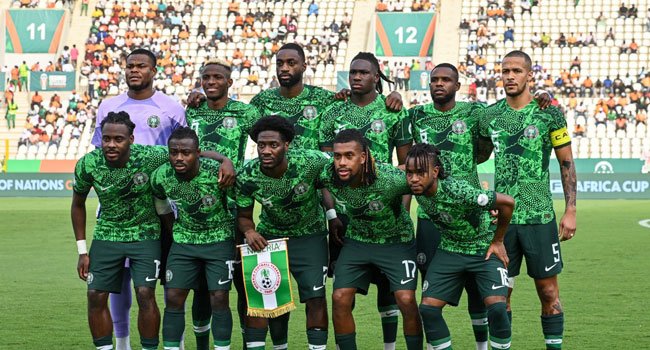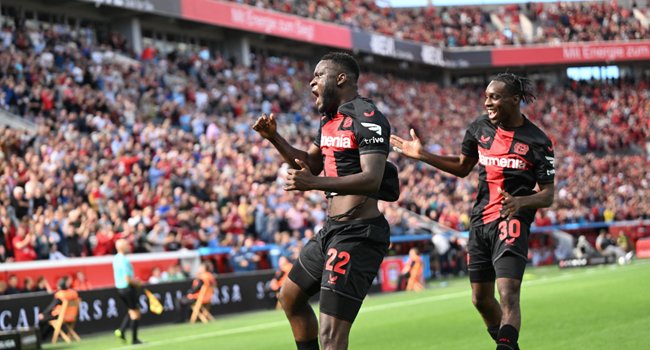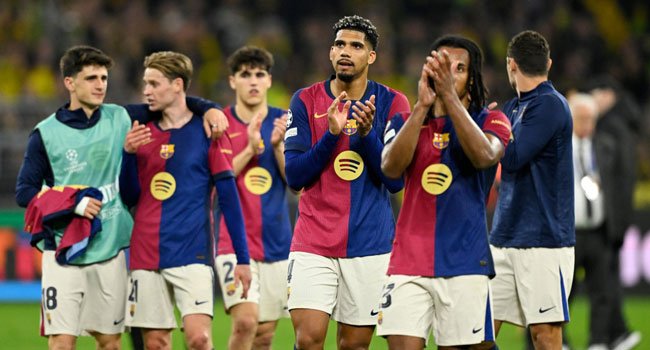
Setting aside the divided house and basketball federation, Nigeria’s D’Tigress won the FIBA Afrobasket Championship in Rwanda to consolidate its continental dominance. Alex Monye reports that with better coordination on the home front, Nigerian teams can be world-beaters.
Setting aside the divided house and basketball federation, Nigeria’s D’Tigress won the FIBA Afrobasket Championship in Rwanda to consolidate its continental dominance. Alex Monye reports that with better coordination on the home front, Nigerian teams can be world-beaters.
The just-concluded Afrobasket Championship has, once again, demonstrated that Nigeria could rule the world if given the enabling environment.
Before the competition tipped off on July 28, there were strong fears that Nigeria could lose its number one position on the continent due to endless leadership crisis in the Nigeria Basketball Federation (NBBF).
NBBF is currently bogged down by an organisational crisis, which led to some of the country’s top stars deciding to quit the team, meaning that D’Tigress went into the 2023 edition of the competition with relatively unknown and ‘untested’ players.
The crisis has already taken shine off the men’s team, as the D’Tigers finished in the eighth position at the last African Championship, a competition for players based on the continent.
However, while stakeholders expected the Nigerian team to fare badly in Rwanda in view of the issues they had to deal with before the competition, the D’Tigress defied the odds to retain their crown.
Twelve teams featured in the championship. They were: Rwanda (host), Congo, Egypt, Angola, Cameroun, Mozambique, Uganda, Cote d’Ivoire, Senegal, DR Congo, Guinea and Nigeria.
In the first phase of the championship, the 12 teams were divided into four groups of three each, with tournament hosts Rwanda drawn in Group A, while Nigeria was in Group D.
The D’Tigress won their group by beating DR Congo and Egypt and defeated Mozambique in the quarterfinal to set up a semifinal clash with hosts, Rwanda, which they also won.
Many followers of the sport expected Senegal to be a bridge too far for the young Nigerians in the final, but D’Tigress negotiated the game with ease, winning by 84 points to 74 to retain the title for the fourth time.
In the D’Tigress’ team to the competition were: Toyosi Abiola, Tomi Taiwo, Okoro Ifunanya, Sarah Ogoke, Elizabeth Balogun, Adeyeye Adebola, Amy Okonkwo, Murjanatu Musa Liman, Pallas Kunaiyi-Akpanah, Olawuyi Adenike Olayemi, Lauren Ebo, Blessing Ejiofor and Nicole Enabosi Ehizele.
Going into the competition, stakeholders said the country’s inability to organise a functional league for both men and women players due to the leadership crisis impacted negatively on the home-based men’s team. They added that the situation would also play out with the women’s team.
Their fears were hinged on the fact that most of the players that won the last three editions of the Afrobasket Championship were conspicuously absent on the roster, owing to what some stakeholders tagged one of the fallouts of the 2022 NBBF election.
Some of these players accused the NBBF board of being unprofessional in running the federation, citing poor communication channels as a pointer that things are not right with the federation.
Again, in the wake of the ill-advised decision to pull the Nigerian girls out of the 2022 FIBA Women World Cup, which held in Australia, after the efforts they put in towards qualifying for the competition, some of the players vowed they would never play for the country again.
The last straw, according to the players, was the NBBF’s decision to open three camps for tryouts, ordering every interested player to join any of the camps to vie for a position in the team.
Irked by the decision, the senior girls in the team accused NBBF of being disrespectful, saying the Federation should not have gone that route since it knew what every player could bring to the team.Announcing her decision to quit the team permanently, one of the players that featured in the last three editions of the competition, Odera Chidom, cited the open tryouts as the last straw in the catalogue of issues between the players and the federation.
She said in an interview published by ESPN: “The trigger for me was seeing an Instagram post of open tryouts in three different locations three weeks before Afrobasket.
Saying she had made up her mind not to attend, she added: “I don’t think that’s professional at all. I consider myself a professional. And I don’t think it’s okay for me to pay my way to try out for something when I think I have a resume that speaks for itself.
“I am officially done with the national team. I cannot continue to have this added stress in my life. As a team, we try to choose our words very carefully so we do not offend anyone on the federation.”

Chidom criticised the NBBF’s communications style, saying it does not show the federation is being run professionally.
“It’s really difficult to not have any sense of communication, not have any sense of professionalism. All of our information comes from Twitter and social media.
“Everything we do is super last minute. The level of professionalism is just not up to par with the constant production that we produce.”
But that decision to open camps for interested and eligible Nigerians to vie for positions in the team seems to have paid off. Just before the championship, the NBBF appointed a United States-based Nigerian, Rena Wakama, as coach of the team in place of Otis Hughley, who led the team to the last edition of the competition.
Following that appointment, stakeholders criticised the Federation for the short time the coach had to work with the players before the competition.
Reacting to the criticism from the players and stakeholders, the NBBF said it was forced into some of the decisions by the state of its resources and other circumstances beyond its control.
It, however, assured Nigerians that D’Tigress would put up a good fight in Rwanda.
The NBBF said that the open trials in Chicago, Abuja, and Lagos were successful as it identified some talented basketball players, who were invited to their final preparatory camp for final selection to the Afrobasket Championship squad.
“The open trials that were undertaken in Chicago, Lagos and Abuja were opened to all aspiring talented Nigerian women players, who are ready to showcase their basketball talents and skills in the 2023 Women Afrobasket Championships,” it said, adding: “This is to also enable the NBBF continue its deliberate search for the best talents it can get, and most especially give the emerging youthful talents, all over the globe, the opportunity to be avail themselves for consideration and possible selection to the national team. An opportunity we have always created for talented players since we took over on 2017.”
It said the format of the trials was necessary and unavoidable, “as the Federal Ministry of Youth and Sports is currently faced with paucity of funds, that has affected all the sports federations, and government is yet to provide the required funds for the 2023 Women’s AfroBasket Championship.”
The federation acknowledged that it still has some liabilities to settle, including the last Women’s AfroBasket Championship in Cameroun in 2019, which Nigeria won.
“The funds are undergoing processing and still not refunded till this day. The Tokyo Olympics preparation of the men and women’s national teams is also in advanced stages with the ministry for refund.
“Faced with this circumstance and reality, the NBBF is not in a position to buy air tickets, pay hotel bills and pay allowances for these trials on its own, as the federation cannot limitlessly continue to borrow on specific programmes with such borrowed funds with limited visibility on when they will be paid. Despite the fact that these liabilities of borrowed funds are yet to be paid, we do appreciate the ministry’s huge effort in processing the refunds,” it said.
On the threat to boycott the national team by some of the stars, the NBBF reminded the players that playing for the national team is a patriotic duty that comes with sacrifices, passion and discipline.
It added, however, that “it is important to recall that just after winning the last edition of the Women’s Afrobasket in 2021 in Cameroun, the players immediately released a video recording, where they made all manner of innuendos, accusations and threats, based on information and ill advice they received.

Coach Wakama
“They even apparently refused to believe the explanations of the NBBF president, which he gave them each time he visited the team, and even the constant and regular briefing done to them by Col. Sam Ahmedu, a ranking board member of the NBBF, who was always present with them in practically all the camps and championships through out 2017 to 2021. He was very much aware that there are unpaid debts of the federation, and the federation and the ministry were making huge efforts to get funds released to pay off the liabilities and borrowed funds.
He accused the players of succumbing to untruths and advised them not to disparage the NBBF, the FMYSD, the Nigerian government, who were doing everything possible to get funds released to pay off their remaining entitlements for those periods, and went on to threaten and blackmail the federation and country, with a boycott of all continental and international basketball activities.”
The NBBF said the players’ actions forced the Federal Government to withdraw Nigeria from all international basketball activities, leading to the eventual withdrawal of Nigeria from the 2022 Women’s World Cup in Australia.
Reacting to the issues affecting the women national team before the Afrobasket Championship, former D’Tigers’ coach, Ayo Bakare, said the team would face too much pressure from Nigerians and other teams in the tournament because of their previous performances and record in the competition.
“The team faces terrible problems, including coaching issues, poor funding, inadequate preparation and many controversies surrounding the team make up. But there is no time to start complaining, all the D’Tigress need now is full support as they play their first match on Friday,” Bakare said.
Mark Igoche, who contested the NBBF presidency against the incumbent, Musa Kida, urged D’Tigress to go all out to defend the African title successfully to reassure Nigerians that they are still Africa’s best.
Mark, who led a faction of the federation after the elections in 2022, said: “As defending champions of the Women’s Afrobasket Championship, continuous effort, not strength or intelligence, is the key to unlocking your potential because Nigerians are expectant of nothing, but the trophy.
“Remember, the opportunity to play is favourite part of the game, and every challenge you face is opportunity to excel. I urge you not to allow your tireless efforts to be obliterated by the irresponsible actions of some few individuals, whose trademark is to blame others for their failures.
“According to Ken Doherty, the five S’s of sports training are: stamina, speed, strength, skill, and spirit, but the greatest of these is spirit.”




